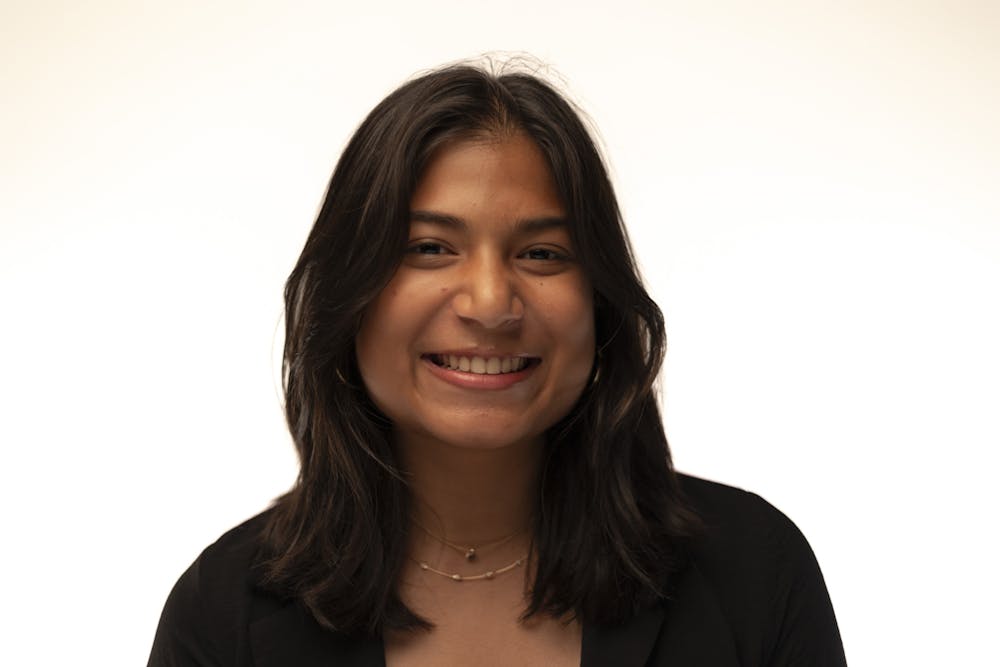My alarm blares at 8 a.m. every weekday and is usually followed by my scrambling to turn it off before the siren-like noises wake my roommate. After that, I slam my head against my pillow and try to convince myself that I am, in fact, not sleepy.
Shortly after the internal battle, my mind switches gears completely.
"I wonder who has texted me" or "let me check my notifications" starts echoing in my half-asleep brain and I always end up pulling my smartphone off its charger around 8:05 a.m.
When first picking up my phone for the day, often before fully opening my eyes, I often think to myself, “Who has liked my post since I last checked my phone? Have my friends tagged me in any new TikToks since I went to bed? What have I missed on my feed since putting my phone down to charge last night?"
This first initial check in the early morning begins a daily sequence of picking up my phone and checking my social media apps every hour or so for the rest of the day. Grabbing for my phone in my back pocket or next to my desk is now a natural movement that interrupts my day-to-day commitments and priorities without me ever stopping to think about it.
Although I would be lying if I claimed to dislike the short bursts of dopamine from receiving my morning rush of notifications, when I stop to think about this daily ritual, social media starts to scare me a bit.
Along with my distaste toward my hours of screen time, excessive social media usage also has a strong correlation with depression and anxiety, according to National Library of Medicine. With almost 50% of participants reporting frequent social media use also being diagnosed with depression and 22.6% struggling with anxiety, the correlation between poor mental health and excessive screen time is evident.
Although there is no direct evidence that excessive time on social media causes or affects poor mental health, reflecting on the self-comparison brought about by excessive time on Instagram or brain fatigue scrolling on TikTok for hours can pretty much prove that social media are a contributing factor to a bad head space.
Droning on about the already-known consequences of social media use is not helpful, since we are all aware that decreasing the time spent behind our digital identities will benefit us. However, this doesn’t stop our addiction to screens.
Feelings of FOMO (fear of missing out) and a need to keep up with the Joneses often prevent us from putting down our phones, even when fully aware of how detrimental screen overuse is to our overall well-being. Despite this, I don’t believe all responsibility for this lies on us as individuals.
Social media are no longer used simply for communicating with others as they were in their early stages but are now a tool for awareness in our social climate and being adept in our fast-changing, micro-trend filled world. News, for most, is no longer delivered on the driveway in the form of a daily paper but is now seen on social media feeds.
Most of our fashion and pop culture trends are fueled by social media, and attempting to go cold-turkey off-screen time hardly ever works for a modern screenager. The digital world no longer echoes reality, but shapes it.
Taking a break from social media now means so much more than ‘disconnecting to reconnect,’ and entails taking a break from the systems that our society socializes through. Recognizing the role external factors have to play is just as vital when combating the negative effects of social media, and could help to find a healthy and sustainable balance when navigating our digital world.
My 8 a.m. alarm may be a wake-up from sleep for me and my roommate, but it also signifies our societal dependence on media and the unhealthy head spaces that can occur from it. Although I am continuing to practice being mindful of my time online, considering the implications of limiting screen time in 2024 is also part of building a healthy and sustainable relationship with social media.
Disha Hoque is a freshman studying journalism. Please note that the views and opinions of the columnists do not reflect those of The Post. Want to talk more about it? Let Disha know by tweeting her @dishahoque05






